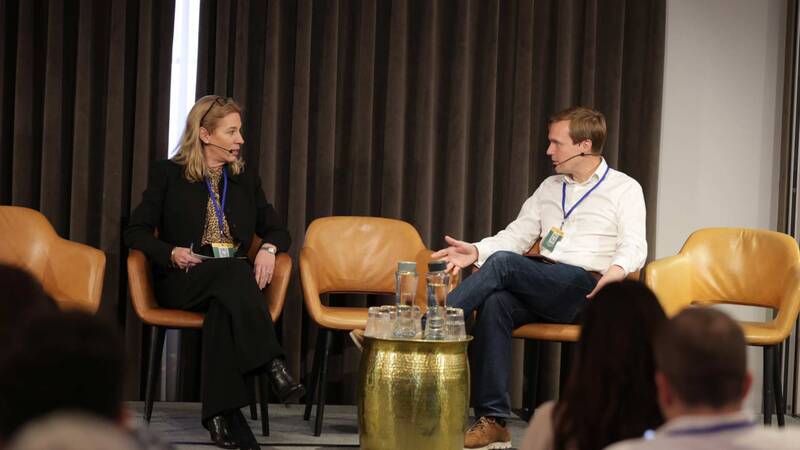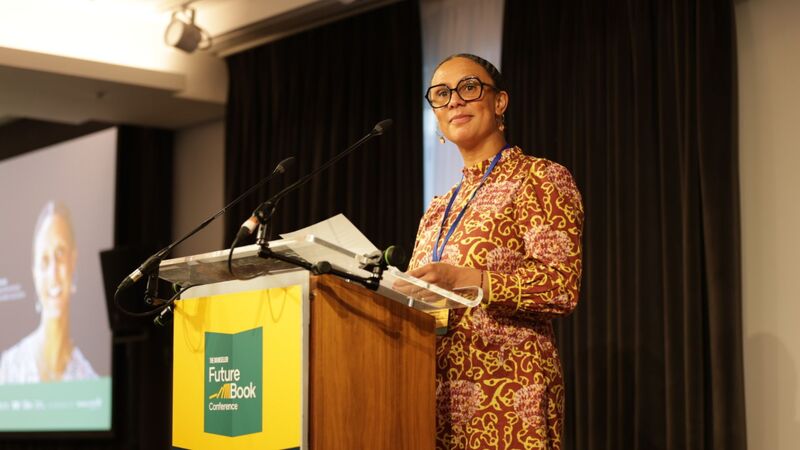You are viewing your 1 free article this month. Login to read more articles.
Publishers look to exploit revived audiobook sector
Publishers are responding to the surge in audiobook downloads by investing more in the sector, hiring new staff, upping the number of titles they publish and exploring audio-first opportunities.
A surge in growth in the audio download market in the past three years has sparked a frenzy of activity from publishers, with the Publishers Association’s annual statistics, released yesterday (27th April), revealing the value of audiobook downloads to UK publishers increased by 28%, to £16m in 2016.
However, an in-depth report by Nielsen, issued in December, estimated the market was far larger, with around £91m spent on 10.9 million units in 2015, of which 60% were downloads. The financial figures from major audiobook download player Audible, filed at Companies House, also suggest the market’s value has grown: its turnover was up a stark 48% year on year, to £46.6m, in 2015.
The physical market is also in growth. Nielsen BookScan figures show physical audiobook sales were worth £9.36m in 2016, with volume up slightly (+0.5%) year on year for the first time since 2009.
The overall growth is predicted to continue, with Laurence Howell, senior director at Audible. co.uk, revealing that its members downloaded a “staggering” two billion hours of audio content in 2016, double that of 2014. He said that in 2017 “Audible customers around the world are expected to download 2.6 billion hours of programming”.
Publishers have told The Bookseller they are responding to the shift by hiring more staff to work on audiobooks and publishing more audiobooks, with dedicated marketing strategies in place for some. Others are beginning to think of audio from the commissioning stage and are seizing opportunities to work with Amazon-owned Audible to publish audio-first content in the form of prequels, sequels and short stories.
Market growing
Hachette’s audio publisher Sarah Shrubb, who is also the chair of the PA’s audio committee, said Little, Brown publishes 200 audio titles a year, but plans to increase that to 250–300 in 2018 to take advantage of the growth in the market. “We are increasing the number of staff to work on audiobooks and have hired a new audiobook sales executive and marketing executive,” she said. “I think we will soon begin to see a number of new faces around the table in the PA’s audio committee.”
Meanwhile, Pandora White, Orion’s audio publisher, who is due to retire this week after 20 years in the role, said the company was investing in exploiting its backlist. “We are doubling our output relative to what we were doing five years ago,” she said. “Every month sees an uplift: we are up 20%–30% compared to April last year. Like in [print], you get titles that drive revenue, but backlist is huge as well. We’re putting a lot more money into backlist audio and it just keeps going, which is a huge part of our revenue. It’s very exciting: it is the fastest-growing area in publishing.”
Hannah Telfer, m.d. for Penguin Random House Audio, said the company’s increase in output had been “considerable” in the past two years, and that its research showed that 40% of audiobook listeners discovered the format in the past two years. The company created a standalone audio division last year. “We have expanded within the editorial team and from a production and operations perspective as well,” she said.
HarperCollins has run a “Total Audio” strategy since 2014, publishing an unabridged downloadable audiobook of every narrative title simultaneous to its first print publication, with its number to reach 2,600 by the end of June 2017. Jo Surman, the publisher’s digital business director, said it was also exploring audio-first commissions. “Our Total Audio strategy means we acquire audio rights in the head contract of all new signings. In addition we are exploring audio-first opportunities with both existing and new authors,” she said.
Canongate is also keen to experiment with audio, said Joanna Lord, online key accounts executive, and is seizing new opportunities to work with Audible on commissioning audio-first works. “Audible is doing more and more full-cast dramas, more and more adaptations that aren’t taken directly from books, that work alongside books like sequels and prequels and side stories. I think all that is really interesting and enables publishers to explore new avenues within quite a safe space,” she said.
Other lists, such as OWN IT!, are now thinking about audio at commissioning stage. Founder Crystal Mahey-Morgan said: “That’s not to say that the audiobook potential of content determines our decision about whether to acquire something, but it’s becoming an increasingly important factor that informs our final decision.”
Big-name vocal talents such as Stephen Fry, pictured reading Sherlock Holmes stories for Audible, are attracting new listeners
Tech-driven
The growth has been driven by improved technology, with smartphones and higher-bandwidth data on the go making it easier for people to listen to audiobooks while travelling or multitasking, figures from the sector have claimed.
Others noted that the rise is linked to the burgeoning popularity of podcasts, which are helping to change listening habits. Many publishers also credited the dynamism of Audible in promoting the medium; it has invested heavily in the business and recently launched a national TV advertising campaign featuring actress Juliet Stevenson. The most popular genres are sci-fi/fantasy and crime, with non-fiction growing, particularly mindfulness and business books, said Hachette’s Shrubb.
Howell told The Bookseller: “The impressive growth in audio can be attributed to a number of different factors: audio is now very much a digital entertainment product, often mentioned in the same breath as TV and music streaming. Improvements in smartphone technology, the rise in tablet usage and ‘smarter’ cars mean that consumers can now access, purchase and download or stream audio with ease.”
Peas in a podcast
Joe Haddow, who runs the BBC Radio 2 Book Club and hosts the Man Booker podcasts, said that more people under the age of 40 are engaging with podcasts, adding that for some, listening to a podcast or an audiobook will go “hand-in-hand. I feel like people want audio escapism when travelling to and from work, whether that be plunging into a fictional world, hearing a celebrity’s life story from their mouth or eavesdropping on a book discussion,” he said.
Along with Audible, which offers subscribers one credit a month for £7.99, W F Howes is also a significant audiobook publisher, with Australia- based Bolinda a major audio publisher along with Audiobooks.com and Storytel. The boom in sales is also encouraging several new entrants, such as Bookbeat, owned by Bonnier AB, which launched in the UK last month.
The rise in sales is “hugely” influencing book deals with publishers, said Curtis Brown’s Alice Lutyens, with conflict arising because publishers often demand audio rights as part of a package along with print and digital, which could lead to lower advances and royalty rates than deals struck directly with companies such as Audible. “Publishers are saying to us that we are obliged to ‘give’ them audio with the book rights,” Lutyens said. “This is not a theory we agree with, but are increasingly pressured into. It means less advance, less royalties, and fewer formats are published—i.e. often no physical and library.”
SOA urges caution
Nicola Solomon, c.e.o. of the Society of Authors, is advising its members to “review the position carefully, and only license audio rights if they are convinced that a publisher will do a good job with them and add value”.
“Members may do better by going direct to Audible if they can retain audio rights, but many publishers insist on those rights,” she said. “Our view is that publishers should only take a share of revenue if they add value. It can be frustrating if publishers take audio rights then go straight to Audible, diverting a share of money that should be paid direct to the author.”
However, she added: “Obviously authors are happy to see any new growth areas for their work. Audio is rising fast but is still only a small part of the market—and of authors’ incomes—so this feels a bit like the early days of e-books. We don’t imagine the rights will be anything other than subsidiary for a long time.”















